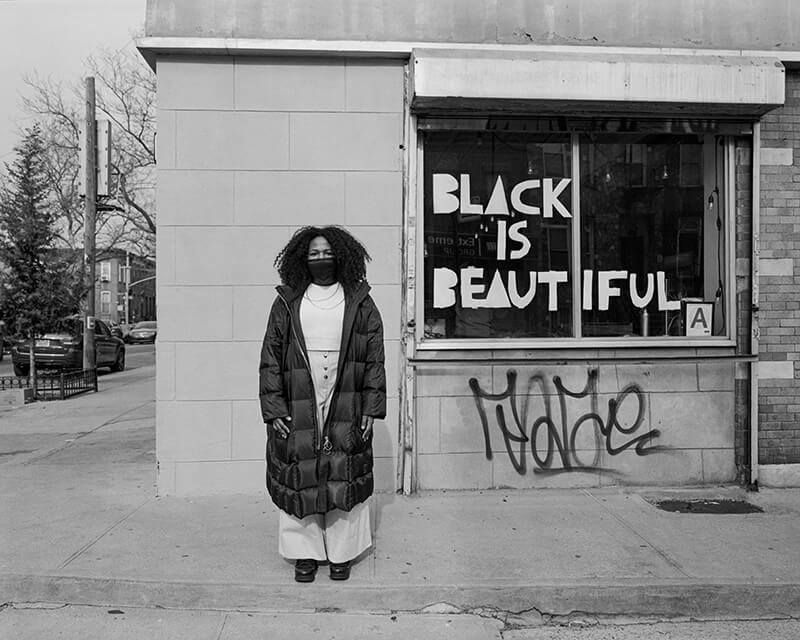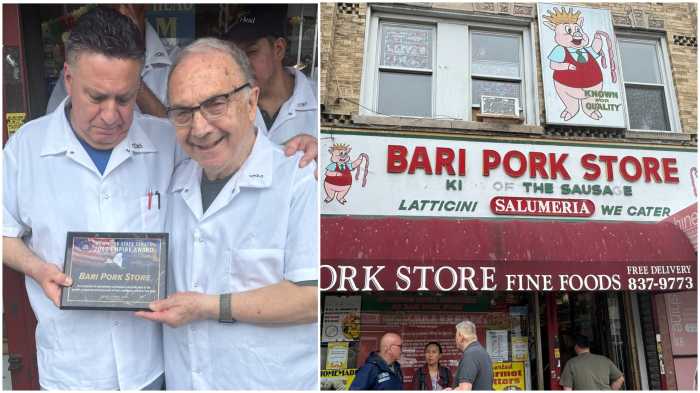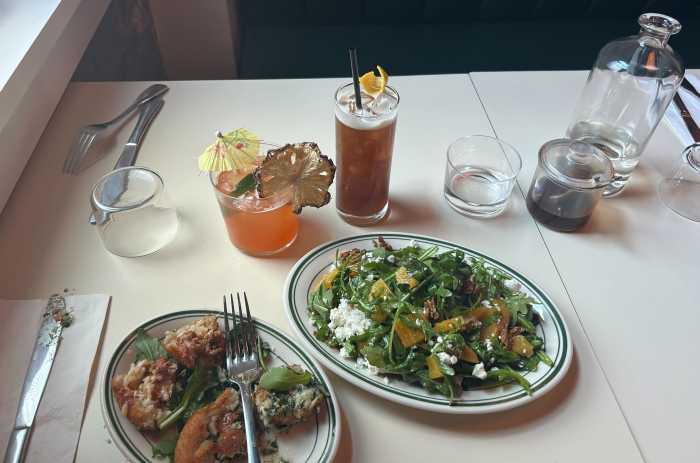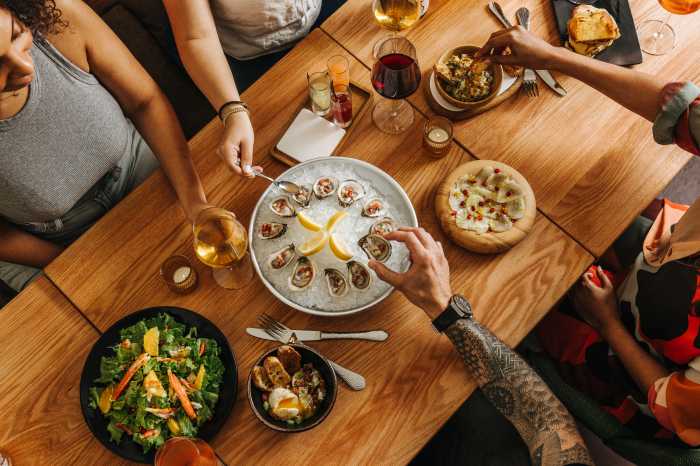A new city multimedia series highlights the power Black restaurant owners in central Brooklyn and their unique struggle to stay afloat during the pandemic. The online photo and video project “You Do It With Your Heart” by the city’s Commission on Human Rights tells the stories of these business owners and how they stayed put for their communities, according to the exhibit’s photographer.
“We don’t think about our restaurants being essential, but they are,” said Andre Wagner, who is one of this year’s Public Artists in Residence for the city’s Department of Cultural Affairs.
Wagner photographed the entrepreneurs in front of their businesses, including local staples like the Haitian cafe and market Grandchamps on Patchen Avenue in Bedford-Stuyvesant, the Prospect Height soul food haven Cheryl’s Global Soul on Underhill Avenue, and the Nigerian eatery Brooklyn Suya on Franklin Avenue in Crown Heights.
Having restaurants run by Black Brooklynites in predominantly-Black neighborhoods acts as an anchor and a positive reflection of the local community, according to Wagner.
“Just having your own people in your community, it brings us into comfort when you can speak to people who speak your language,” he said. “It changes your dynamic when you can get food and support people that look like you.”
This sentiment was echoed in interviews with owners conducted by Commission spokesperson Vincent Villano and overlaid on Wagner’s black-and-white film images as online video montages.
“Just being a Black-owned business we have different challenges a lot of the times,” said Chef Cheryl of Cheryl’s Global Soul in one of the video portraits. “They’re looking for places where they see reflections of themselves in front and back of the house.”
Black-owned businesses suffered disproportionately from COVID-induced hardship. Between February and April 2020, 41 percent of Black-owned businesses closed either temporarily or permanently, compared to 17 percent of white-owned businesses, according to nationwide figures by the nonprofit organization National Bureau of Economic Research.
Chef Cheryl talks about pivoting to 100 percent takeout during the early days of the outbreak, before prepping food for the outbursts of protests following the police killing of George Floyd in Minneapolis last summer.
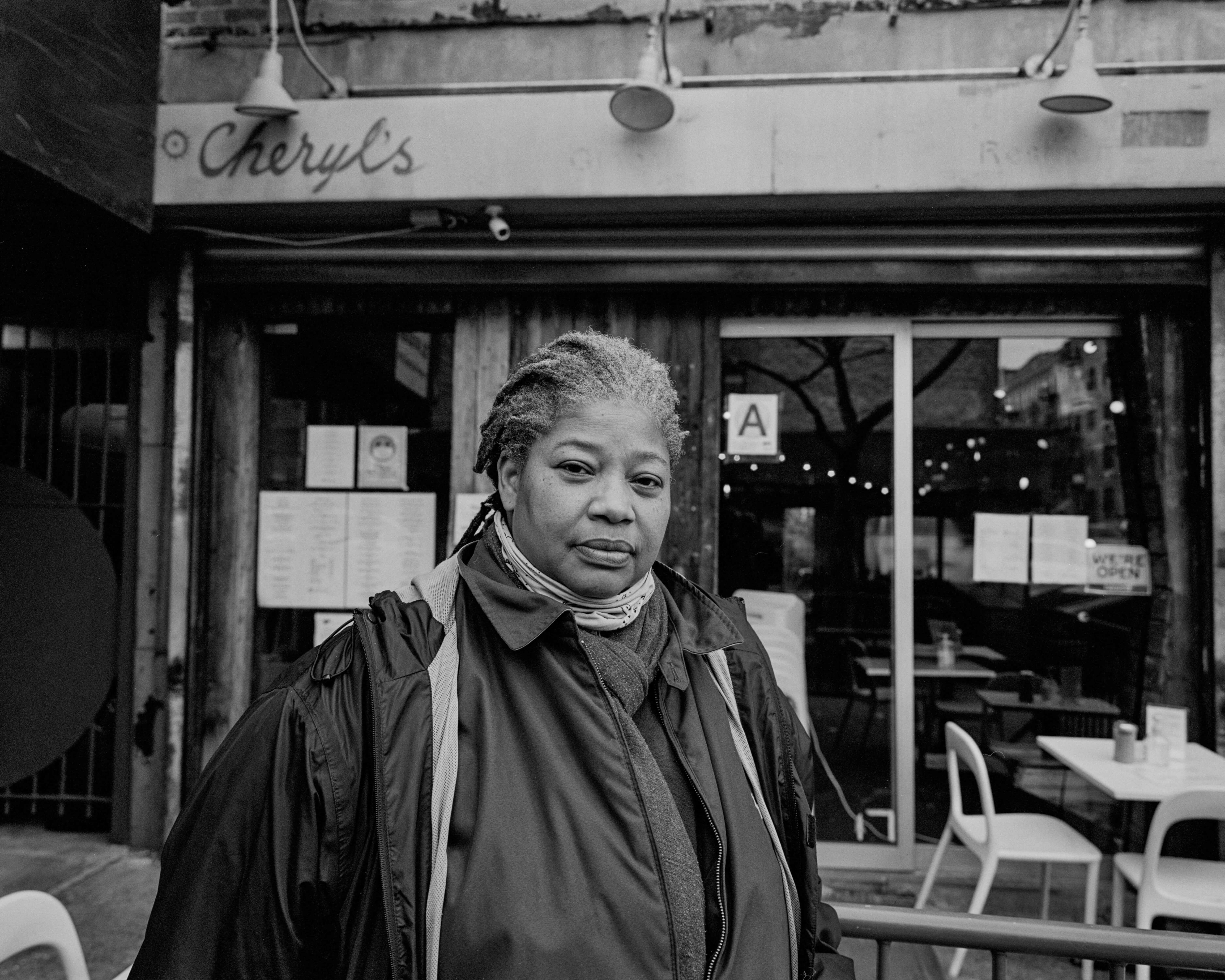
The dire straits of the pandemic often crystalized how vital these businesses are for locals, and some owners talked about how they and their patrons found solace and togetherness.
“This is therapy, just to leave your house to come out to just have a conversation, to just sit down and have a drink,” said Donna Drakes, the owner of Brooklyn Beso in Bedford-Stuyvesant.
They also talk about issues that predate the coronavirus, such as loan discrimination and the economic pressures as longtime residents and establishments are priced out of the neighborhood.
“We still don’t get what we need from financial institutions,” said Chef Cheryl in the video. “They look at us in a way that they don’t look at white prospects for loans and stuff like that, they look at us in a harsh way, which I just believe is a bit on the systemic side of not valuing what you bring and who you are and not looking you as a whole but more as a negative.”


